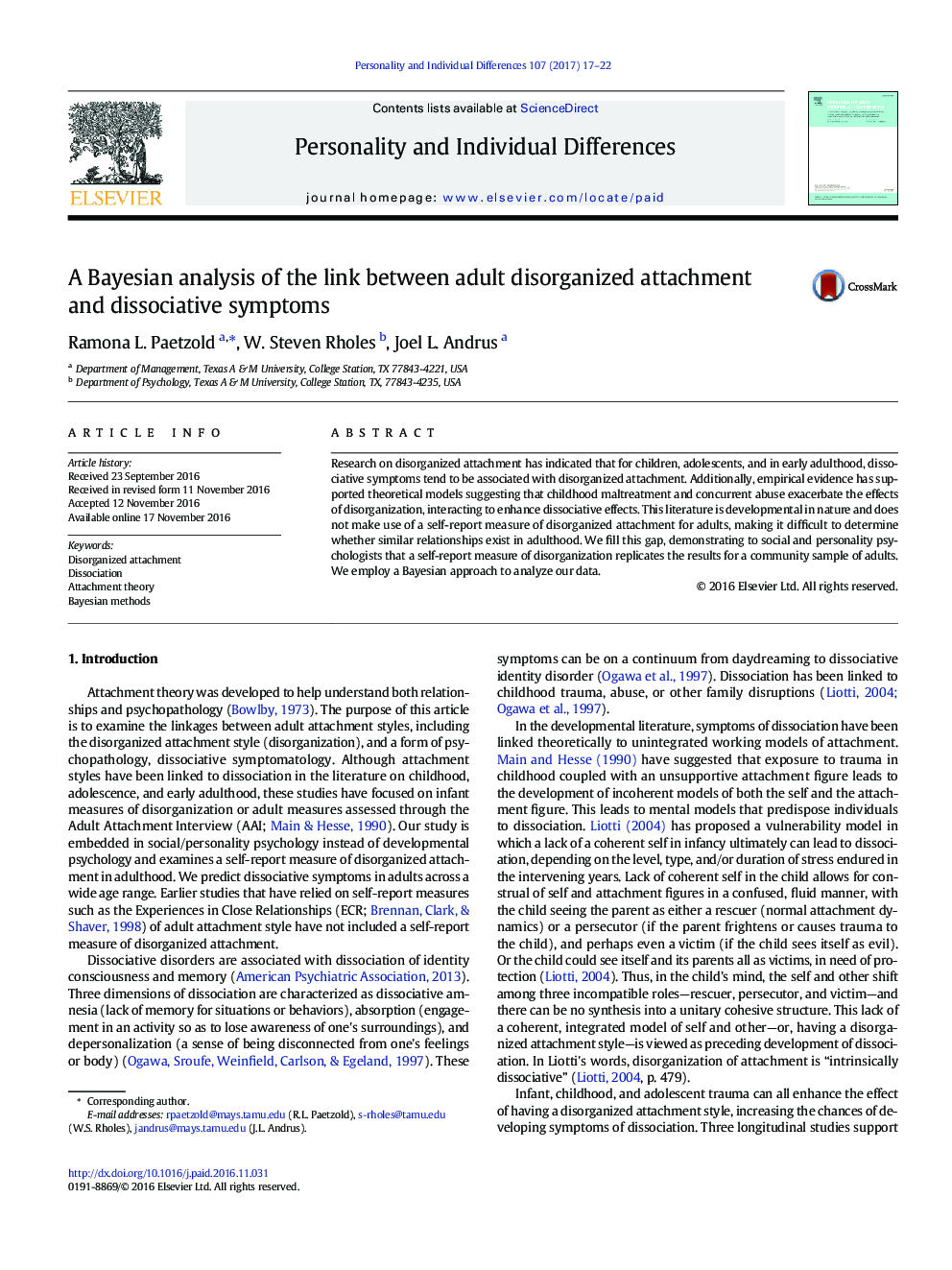| Article ID | Journal | Published Year | Pages | File Type |
|---|---|---|---|---|
| 5036133 | Personality and Individual Differences | 2017 | 6 Pages |
â¢Adult disorganized attachment is related to dissociation in adulthood.â¢Childhood and concurrent abuse exacerbate this effect in a community sample.â¢The results parallel those in childhood and adolescent research.â¢A Bayesian analysis demonstrates a direct method of inferring these outcomes.
Research on disorganized attachment has indicated that for children, adolescents, and in early adulthood, dissociative symptoms tend to be associated with disorganized attachment. Additionally, empirical evidence has supported theoretical models suggesting that childhood maltreatment and concurrent abuse exacerbate the effects of disorganization, interacting to enhance dissociative effects. This literature is developmental in nature and does not make use of a self-report measure of disorganized attachment for adults, making it difficult to determine whether similar relationships exist in adulthood. We fill this gap, demonstrating to social and personality psychologists that a self-report measure of disorganization replicates the results for a community sample of adults. We employ a Bayesian approach to analyze our data.
